
Remote work has tangible, proven benefits for employers as well as for employees. Companies that allow remote work enjoy the benefits of easier recruitment, improved retention and higher productivity of their employees - while saving money!
Remote work has tangible, proven benefits for employers as well as for employees. Companies that allow remote work enjoy the benefits of easier recruitment, improved retention and higher productivity of their employees - while saving money!
Remote work is here to stay. It was already on the rise in the last 10 years, but COVID-19 accelerated its popularity enormously. In just a few weeks, there was a global shift to remote work. And it seems that most of us loved it! 🥰
According to a recent Gallup research, three in five (59%) of U.S. employees who have been doing their jobs from home during the coronavirus pandemic would prefer to continue to work remotely - even after the pandemic ends! 😮
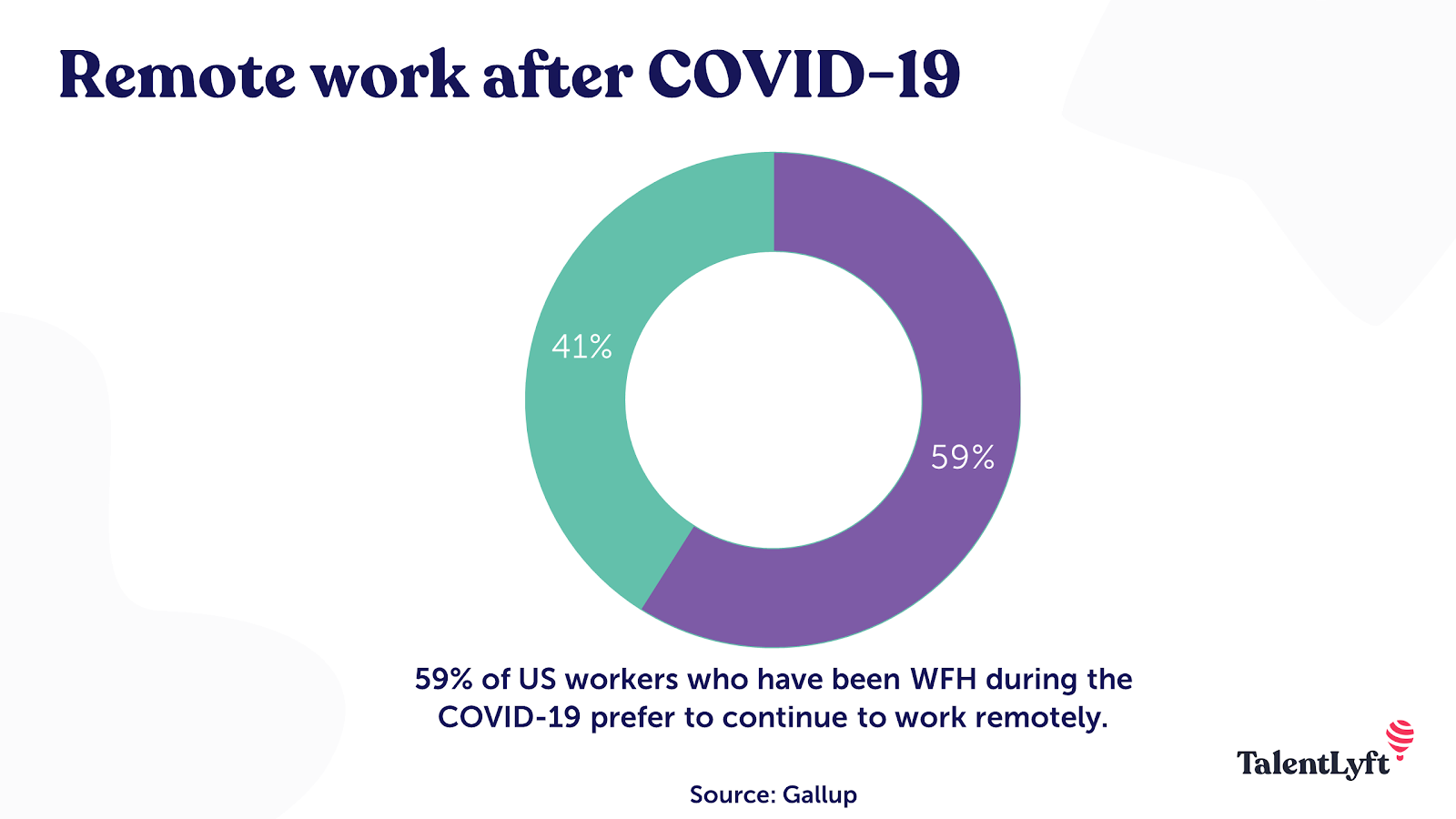
How will companies respond to this? What will you do? Will you allow your employees to continue to work remotely after the pandemic? Obviously, there are many remote work benefits for employees. But is remote work beneficial for companies as well? 🤔
Many employers are still reluctant when it comes to remote work. If you’re not sure if the remote work hype is real and beneficial for your business, you’ve come to the right place. In this blog post, we’ll provide an overview of multiple research done on remote work and critically examine their findings.
⚠️SPOILER ALERT: ⚠️
Remote work is beneficial for employers as well! Keep reading to learn more. 🙂
How exactly do companies benefit when they allow their employees to work remotely? What are the PROVEN benefits of remote work for employers? Here are the top 4 reasons why you should allow your employees to work from home:
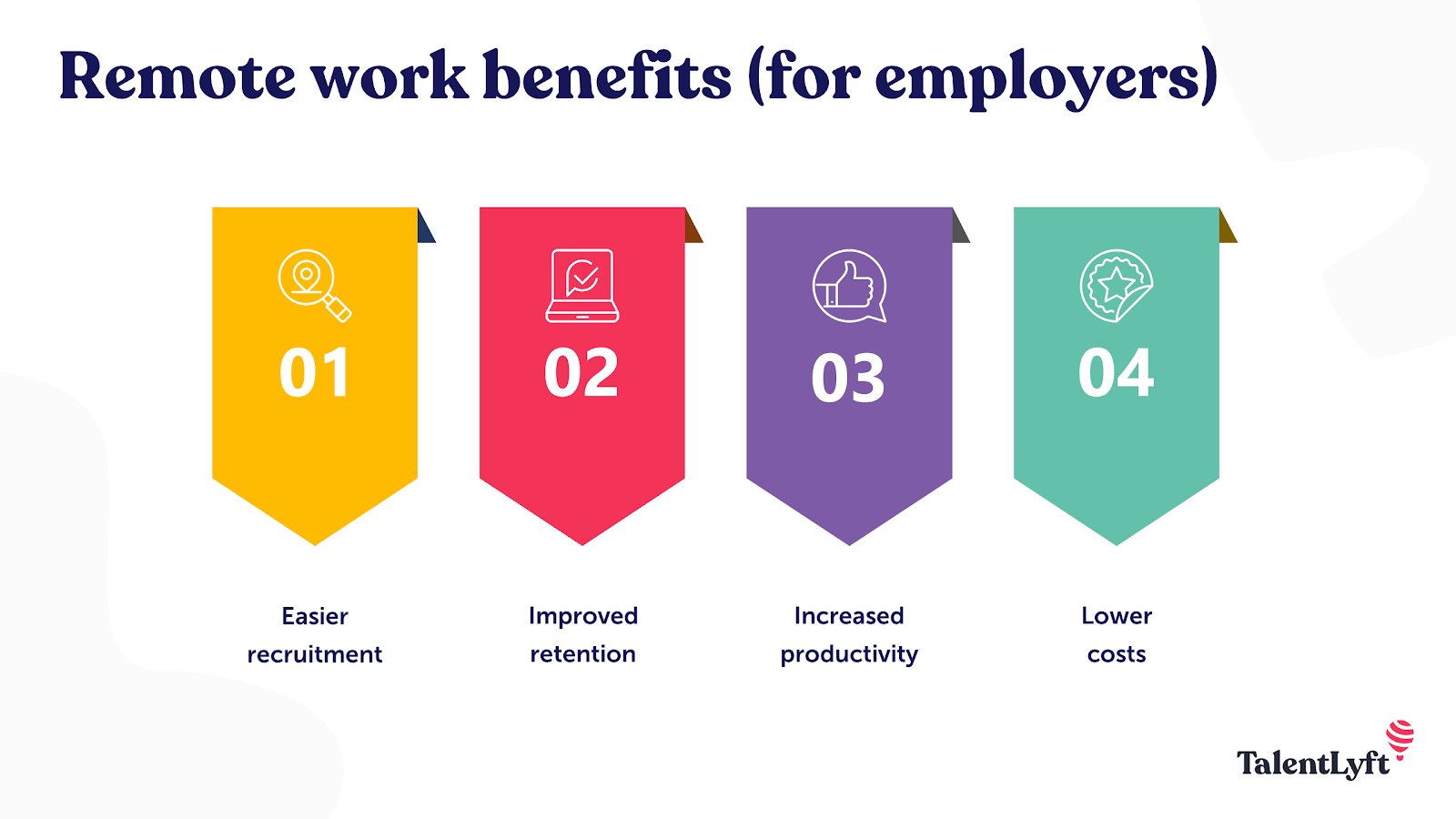
Okay, so now that we have established the key benefits of remote work for employers, let’s examine the evidence that supports these claims. Below you’ll find the most important statistics on remote work. 📊
These stats are taken from multiple research, including long-term academic studies from the world’s leading research institutions studying the topic of remote work, such as Gallup, Global Workplace Analytics, Harvard University, and Stanford University. 🤓
If you allow your employees to work remotely, you will be able to find and hire talented new employees much easier. How so?
Well, first of all, if you allow remote work, you can hire people from all over the world. You have an unlimited talent pool to choose from! This will come in especially handy for those hard-to-fill roles.
Second, if you allow remote work, you will experience easier talent attraction. The majority of employees would love to continue remotely after the pandemic. Even before the pandemic, flexible work arrangements were a major consideration for top talent when evaluating potential job opportunities. 🧲
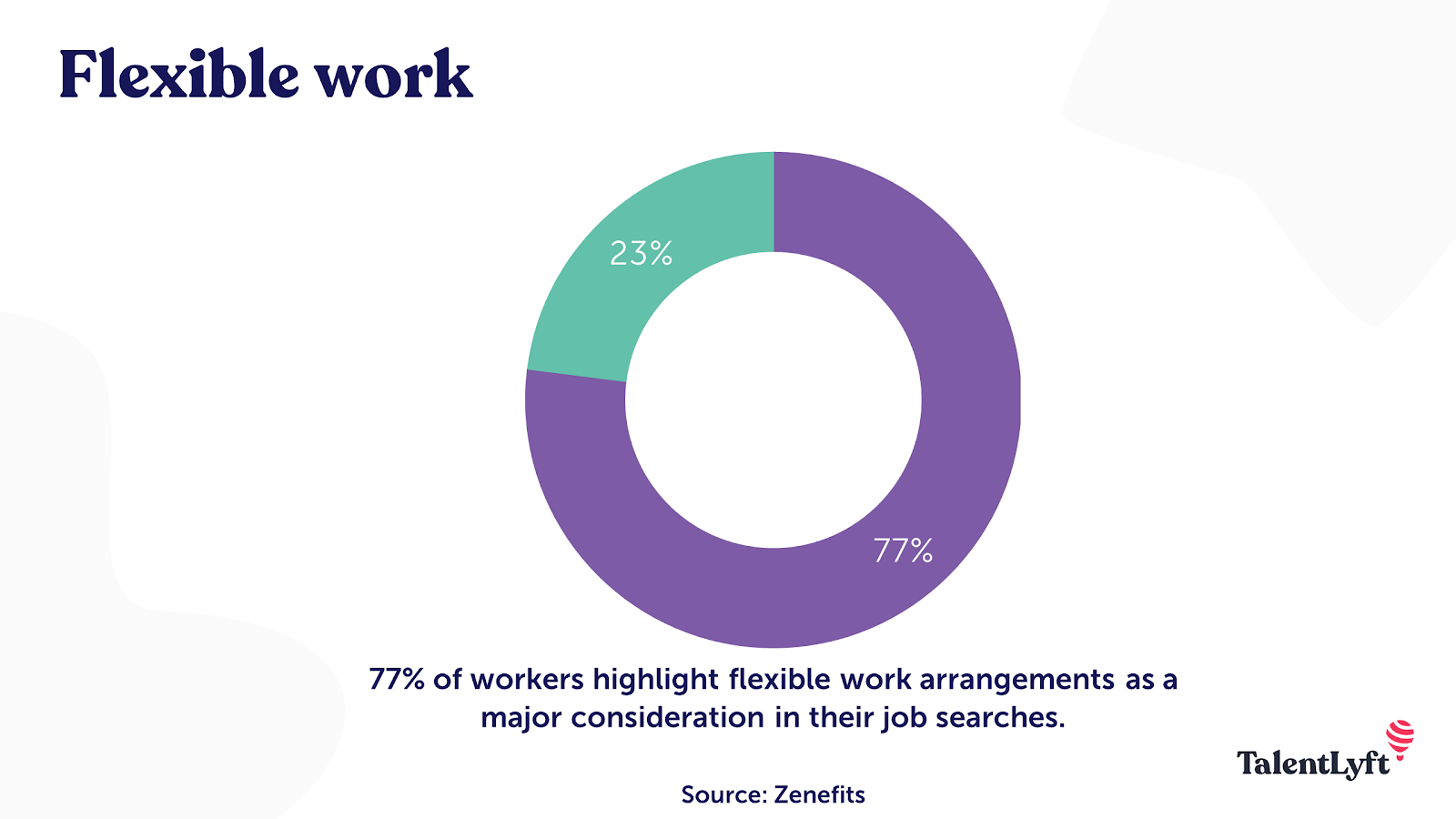
In fact, more than half (54%) of employees would even quit their current job for the one that allows them to work remotely! 😲
📊 Here are a few additional statistics that highlight the benefits of the remote in the context of recruitment:
2020 remote work research revealed that more than 40% of workers would prefer to work remotely full-time in the future.
77% of employees consider flexible work arrangements a major consideration when evaluating future job opportunities, as found by Zenefits research.
Gallup’s research 54% of U.S. workers say they would quit their current job for one that allows them to work remotely.
80% of U.S. workers say they would turn down a job that didn’t offer flexible working, as found by an International Workplace Group report.
78% of companies think that offering flexible working enables them to expand their talent pool, according to a Global Workspace Survey.
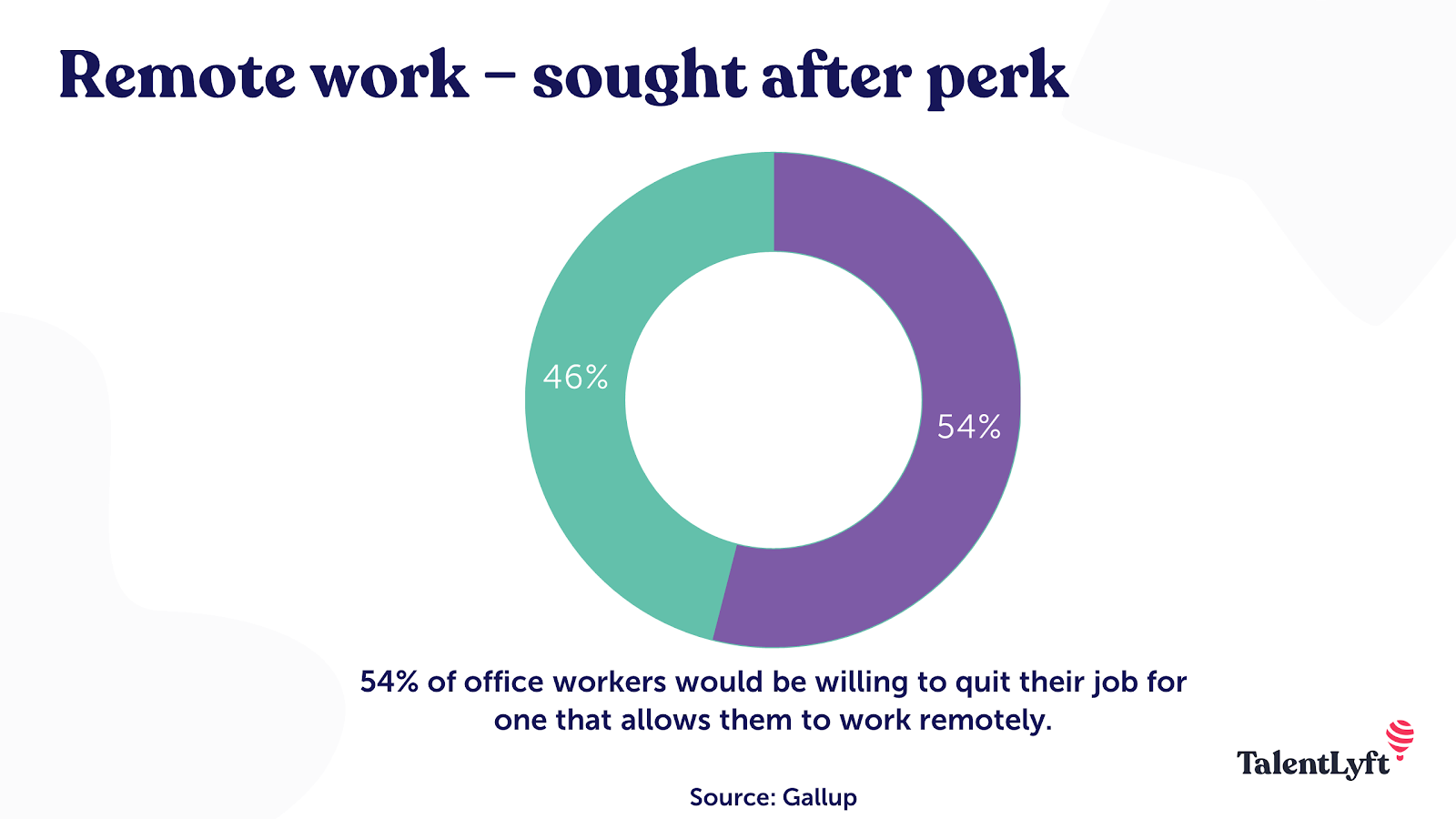
Implementing remote work in your company has another important benefit side of talent attraction - talent retention. Being able to attract talent doesn’t mean anything if you can’t keep them! 💡
Unfortunately, retention is a huge problem nowadays. What was once considered a red flag and called “job hopping”, now is the new normal. The BLS Employee Tenure Summary notes that a high percentage of the newer generation of employees have a significantly shorter tenure within the company.
According to the latest findings, nearly 73% of employees are currently open to new career opportunities. Moreover, one third (33%) of employees are actually actively looking for new jobs! 🧐
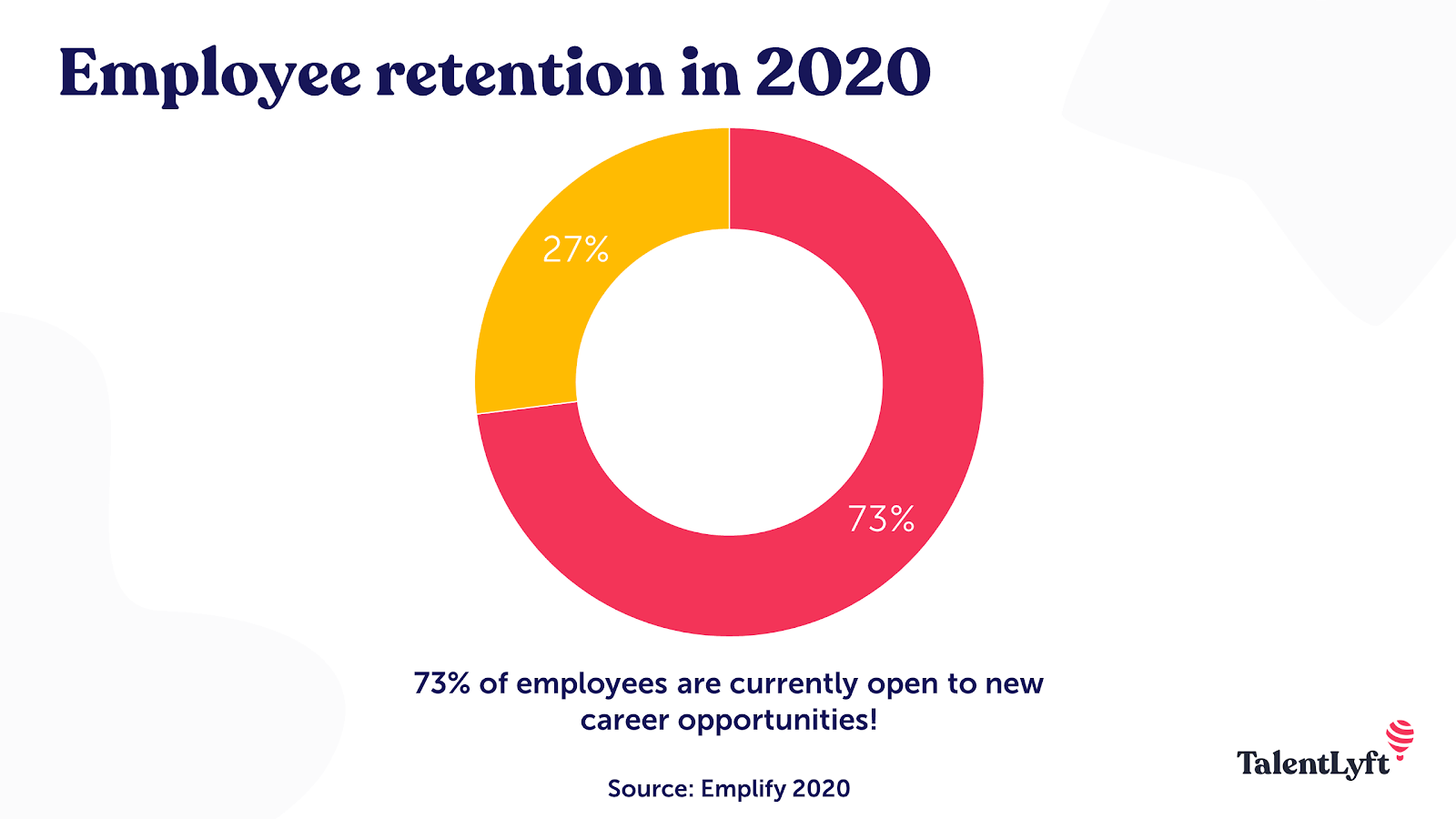
However, it doesn’t have to be this way with your employees. That is if you allow them to work remotely. Offering the possibility of remote work to your employees is the most effective nonmonetary way to retain them.
📊 Here are a few additional statistics that highlight the benefits of remote work in the context of employee retention:
52% of surveyed organizations in the Condecosoftware research say remote work improves staff retention.
According to the State of Remote Work report done by OwlLab, companies that encourage working remotely experienced a 25% lower turnover than companies that did not support remote work.
In Crain’s Future of Work survey, 78% of HR professionals cited flexible schedules and telecommuting as the most effective non-monetary ways to retain employees.
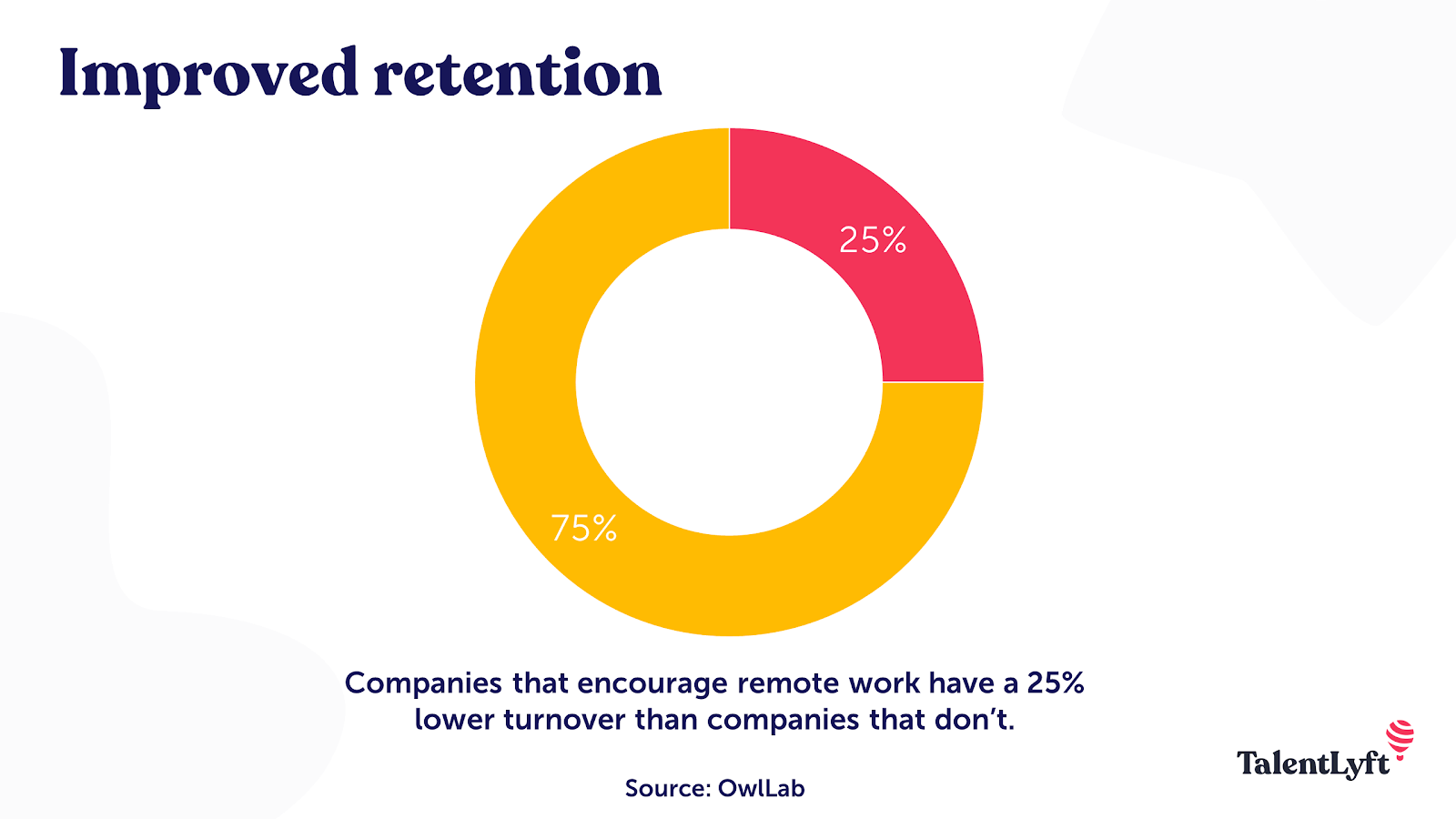
The third benefit of remote work is increased productivity. While other benefits of remote work have been widely recognized and accepted, the question of remote employees' productivity is still a cause of public debate. This debate is very hot right now due to the recent coronavirus pandemic. 🔥
The recent COVID-19 pandemic provided an excellent opportunity to put the question of remote employees' productivity to the test. 2020 remote work research revealed that working from home as a result of the COVID-19 pandemic has had only a 1% reduction in work productivity.
Keeping in mind that this was in extreme circumstances, I find this statistic remarkable and the best proof that remote employees are indeed more productive! 💡
If we were able to keep up our productivity while working from home during the huge stress and uncertainty due to the global pandemic, its health and economic consequences, completely unprepared, with other family members and kids jumping all around us, imagine what potential it is for our productivity to rise if we had a better condition for remote work.
This was confirmed by extensive academic and scientific research carried out before COVID-19 as well. The famous Stanford study and Cisco study, as well as extensive long-term studies conducted by Gallup and Harvard all confirm that remote employees are more productive.
Check out this very informative (and funny! 😄) TED Talk to learn more about the classic Stanford study:
📊 Here are a few additional statistics that highlight the benefits of remote work for employee productivity:
Owl Labs State of Remote Work 2019 has found that remote employees have a 79% increased productivity and better focus.
77% of employees working remotely report greater productivity and 52% are less likely to take time off, as found by CoSo research.
Flexjob survey shows that 65% of respondents are more productive in their home office than at a traditional workplace.
According to Airtasker's research in 2020, remote employees work more. On average, remote employees worked 1.4 more days every month, or 16.8 more days every year, than those who worked in an office. And on those workdays, they spent more time getting things done.
85% of businesses confirm that productivity has increased in their company because of greater flexibility, as found in the Global Workspace Survey.
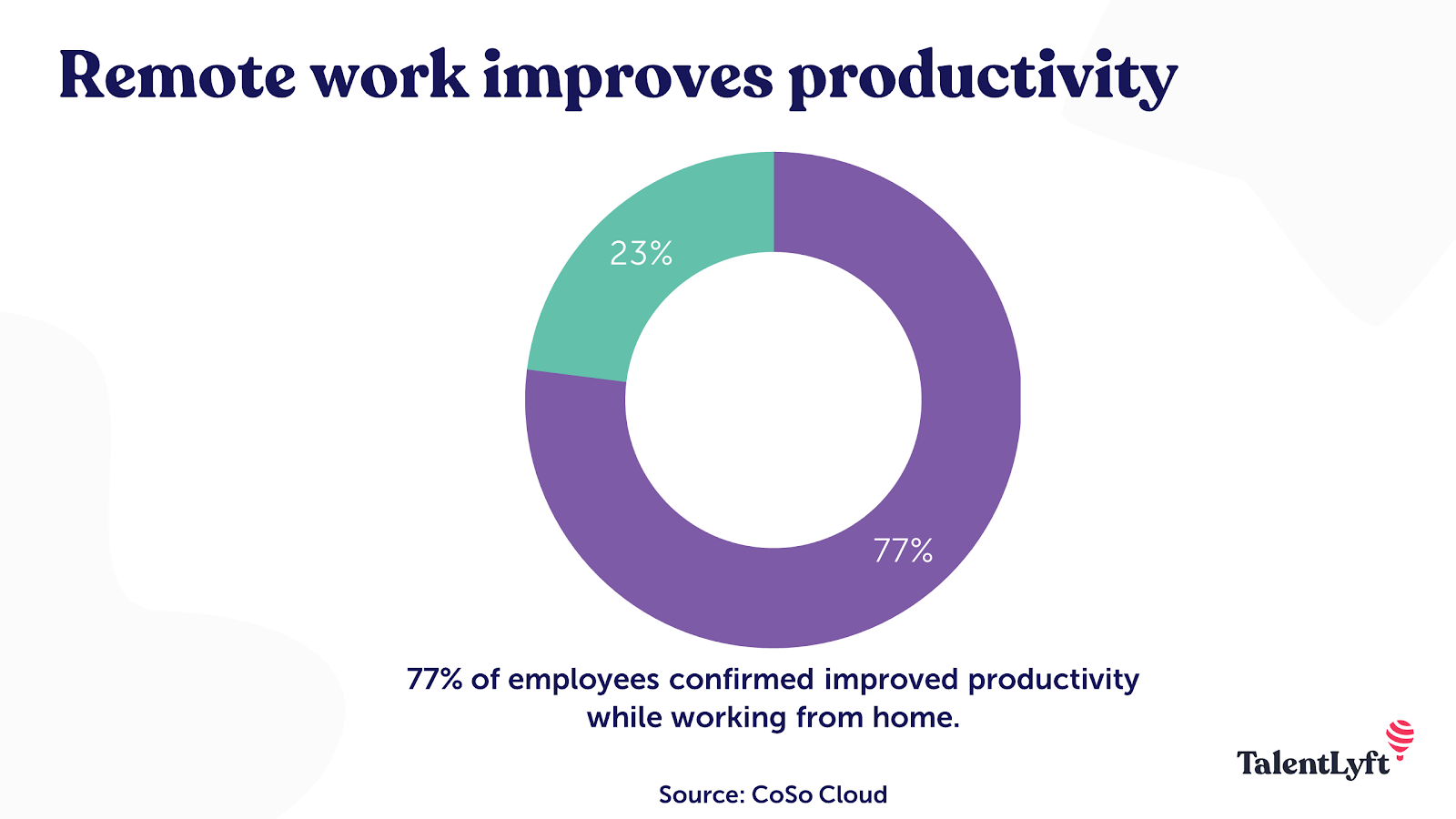
Finally, introducing remote work in your company will help you save money! Remote companies have lower business costs because they save money in two key ways: they save money they would spend on the office and salaries.
The first way makes a lot of sense. If your employees work remotely, you might not even have the need for the office! Thus, you can save money not only on office space rent but also on office furniture, equipment, supplies, etc. Finally, you won’t have any utility costs either! For example, AT&T saved $30 million a year in real estate alone! 😵
The second way remote work will help you save money is probably not so obvious right away. If you allow your employees to work from home, you can also save money on their salaries. That’s right! Many employees would choose the ability to telecommute over a pay raise! 💡
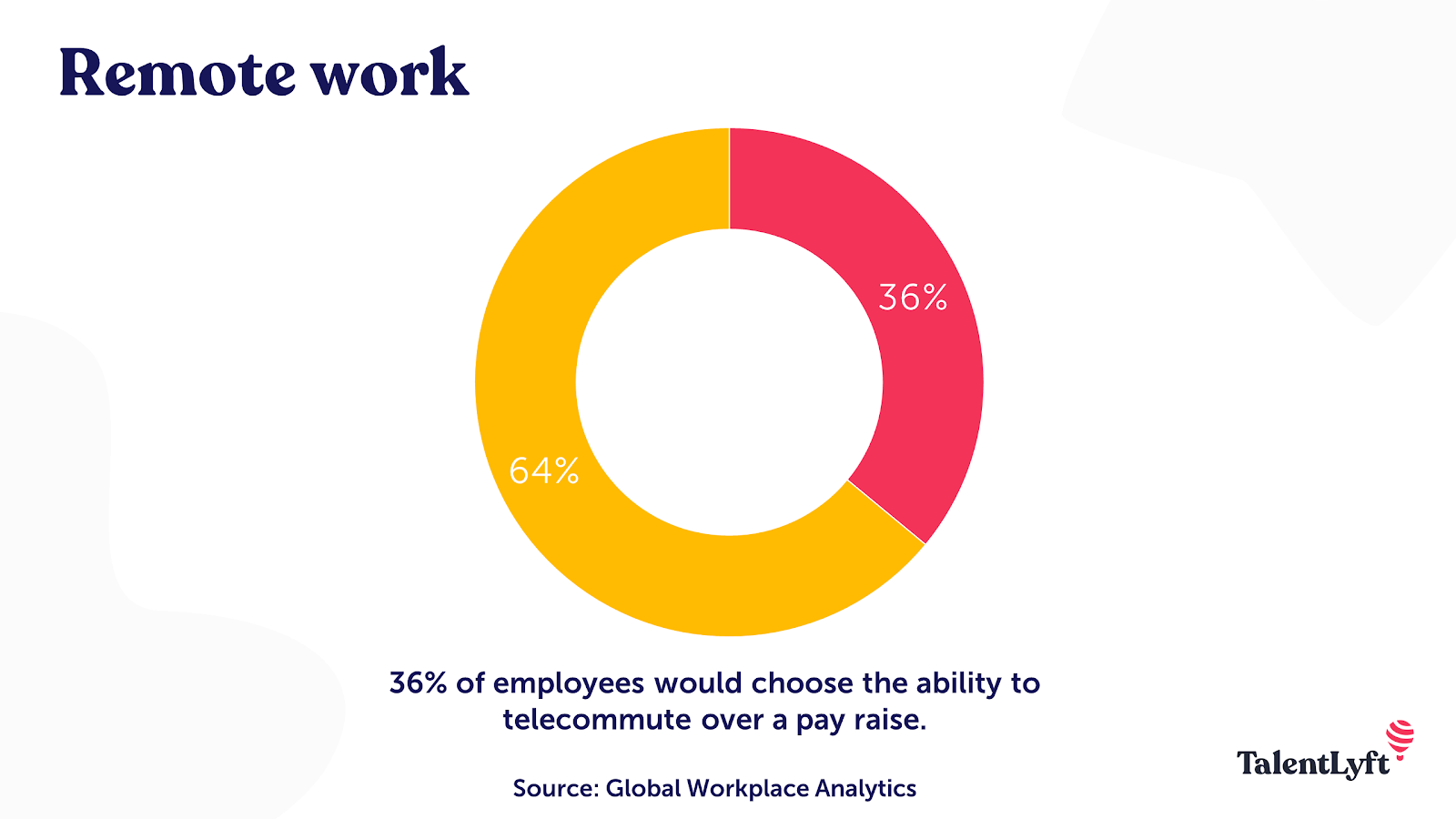
📊 Here are a few statistics that demonstrate how remote work helps companies save money:
According to Global WorkplaceAnalytics, almost 6 out of 10 employers identify cost savings as a major benefit of telecommuting.
Global Workplace Analytics Telework Savings Calculator, a single company can annually save $11,000 per remote worker who telecommutes 50% of the time.
Global Workplace Analytics estimates two-thirds of people would prefer to work from home and 36% would choose the ability to telecommute over a pay raise.
Want to lower your recruitment costs, time to hire, and turnover rate and save money? Allow your employees to work remotely! 🏠
Allowing remote work will help you attract and retain top talent, as well as keep them productive. On top of all that, you will also save money! 💰
And yes, this has all been proven by extensive research. You can find detailed analysis, data, stats, and figures as well as sources above. ⬆️
Okay, so now that you’re convinced of all the benefits of remote work, you’re probably wondering how to implement it in your company. 🤔
What are the best practices for finding great remote employees? What are the best ways to manage your remote employees? What tips and tricks can you use to ensure your remote employees are fully engaged? 🔍
Find out here:
Enjoy! 🙂












